You should use a normal comment # for this, not a docstring """.
Some tools (like PyCharm or the Sphinx library) docstrings on variables will be respected, but this is not actually built into Python. It is imaginable that in the future Jupyter Notebooks will allow this, but for now they do not, so you should avoid them.
In the official language, docstrings are only used in functions, classes and methods for setting the __doc__ attribute on an object. Regular comments aren't picked up by the interpreter, but strings are. A docstring is just a normal string, but it is parsed differently depending on where it is used. In functions, classes, and methods, they must be the first statement in the block.
For example, in these functions, both foo and bar have proper docstrings, but fizz does not:
def foo():
"foo"
def bar():
"""bar"""
def fizz():
# fizz
pass
print(foo.__doc__)
print(bar.__doc__)
print(fizz.__doc__)
foo
bar
None

